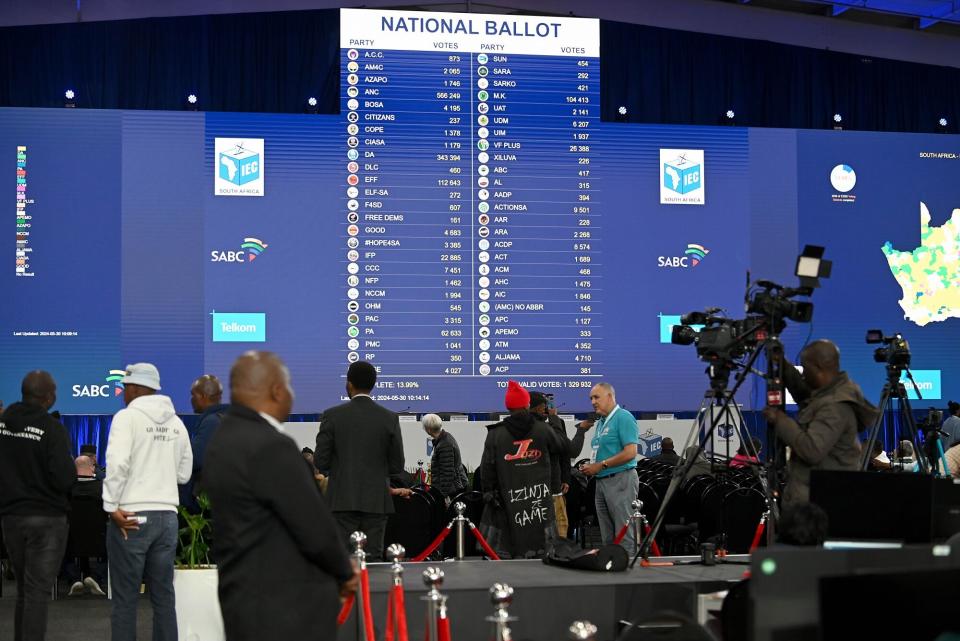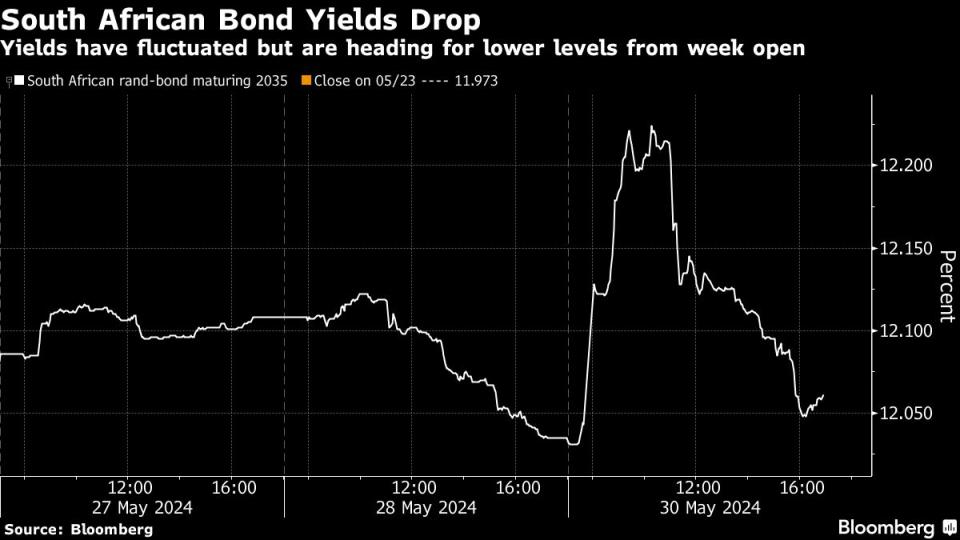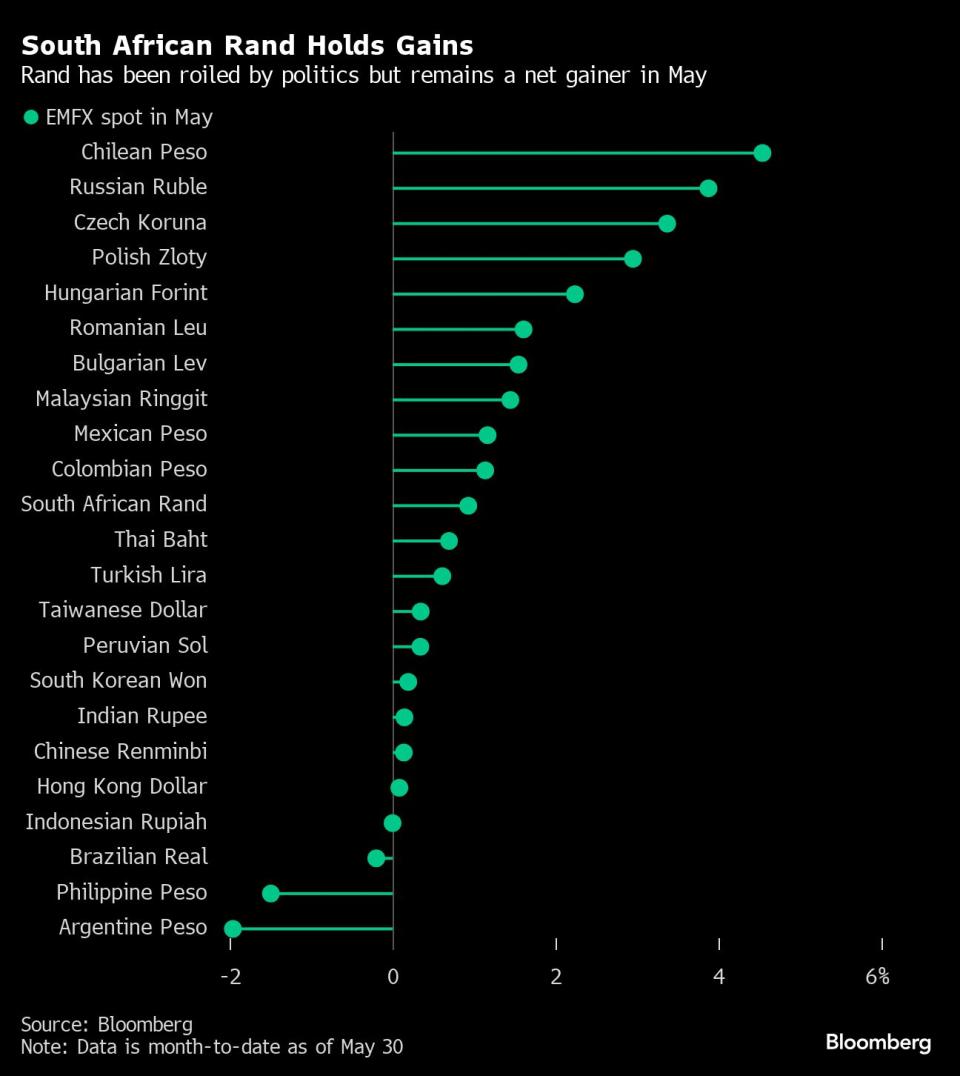Investors Brace as South Africa Heads for New Coalition Era
(Bloomberg) -- Election results from South Africa have left investors swinging between anxiety over the permutations of a potential coalition and lingering hopes that it will all lead to a market-friendly government.
Most Read from Bloomberg
Homebuyers Are Starting to Revolt Over Steep Prices Across US
Wall Street Billionaires Are Rushing to Back Trump, Verdict Be Damned
Modi Set for Landslide Election Win in India, Exit Polls Show
Saudi Arabia Puts Wall Street on Notice to Set Up Shop in Riyadh
Before the vote, investors were bullish, confident the ruling African National Congress would secure enough votes for an alliance with a smaller party. That drove gains in the rand and the nation’s other assets.
However, going into the second day of tallying, and with more than 70% of voting districts counted, indications are that the ANC may not only lose its majority, but do so by a margin wider than expected.
Sign up here for the twice-weekly Next Africa newsletter
“We remain in something of a no-man’s-land at present, with the still-sizable uncertainty over the ANC’s final tally keeping most options for the next government on the table,” said Ivailo Vesselinov, chief strategist at Emso Asset Management.
South African assets are likely to remain volatile until investors got “clarity” about which of the coalition “outcomes will transpire,” he said.
Below is a quick summary of South African markets as investors await the final results due by the weekend:
South Africa’s benchmark stock index slipped 0.5% by 4:20 p.m. in Johannesburg, following three days of losses.
That reflected some uncertainty around the election, but also global themes including a stronger dollar, weaker commodity prices and a selloff in China, said Malcolm Dorson, the head of emerging-markets strategy at Global X. An ANC coalition with a market-friendly party would help the sentiment recover, he said.
The gauge though is set for a rise in May, its third month in a row, a streak last seen in February 2022.
The yield on South Africa’s local-currency bonds maturing in 2035 rose 15 basis points to 12.24% on Friday, building on Thursday’s three basis-point increase.
The extra yield investors demand to buy South African sovereign dollar bonds rather than US Treasuries widened on Thursday by 11 basis points, the most since April 11, data from JPMorgan Chase & Co. showed.
However, regardless of the election outcome, the bonds remain an investor favorite. As global central banks move into an easing phase, South Africa’s double-digit yields are proving attractive. Investor demand was robust at South Africa’s weekly bond sale earlier this week, with foreigners net buyers of billions of rands worth of securities.
The rand briefly surrendered its monthly gains but recovered after news that president Cyril Ramaphosa’s allies want him to pursue a coalition with the opposition Democratic Alliance. The currency gained 0.3% to 18.6984 per dollar.
“It’s going to be highly erratic until we finally get some idea of what parliament looks like,” said Warrick Butler, the head of foreign-exchange trading at Standard Bank. “We could be at 17.80 or 20.00. It’s that binary.”
But the rand’s losses in the wake of early results shouldn’t be taken as a harbinger of a sustained selloff, according to Lee Hardman, senior FX strategist at MUFG Bank.
“External conditions remain supportive for carry currencies such as the rand,” he said.
You can follow Bloomberg’s reporting on Africa on WhatsApp. Sign up here.
(Updates with Friday market moves and Standard Bank quote)
Most Read from Bloomberg Businessweek
Disney Is Banking On Sequels to Help Get Pixar Back on Track
Israel Seeks Underground Secrets by Tracking Cosmic Particles
US Malls Avoid Death Spiral With Help of Japanese Video Arcades
How Rage, Boredom and WallStreetBets Created a New Generation of Young American Traders
©2024 Bloomberg L.P.

 Yahoo News
Yahoo News 




